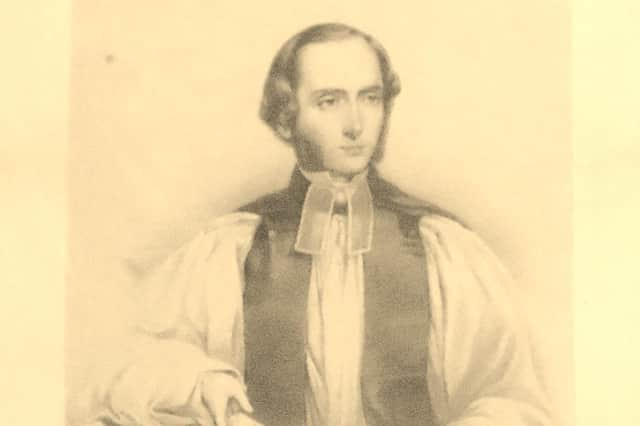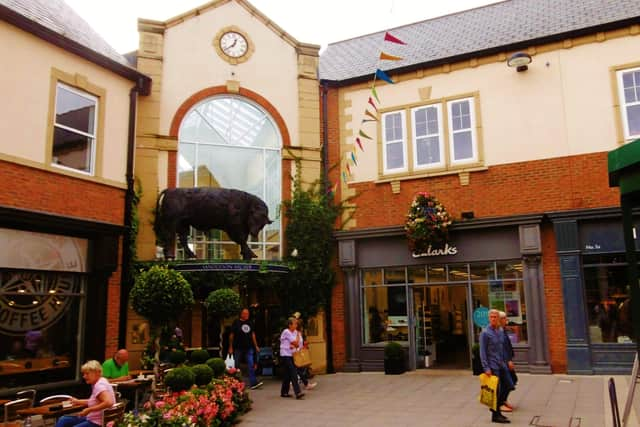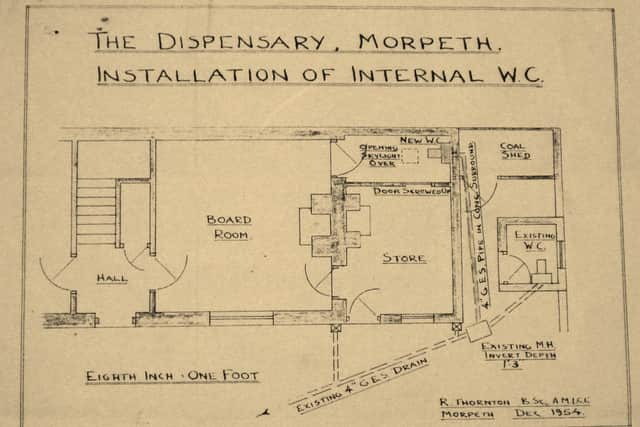Morpathia: The latest article about the Morpeth Dispensary - Dr Dutt (1)


The monthly meeting of the Committee of Morpeth Dispensary on December 6, 1886, was unusually well attended. Sixteen members were present, including the Rector, the Hon. & Rev. Francis Richard Grey, in the chair, the Rev. W. Davey, Roman Catholic priest, the Rev. A.H. Drysdale, Presbyterian minister, Major Brumell (otherwise Mr George Brumell, solicitor) and 12 of the leading tradesmen of the town.
Other than Mr Grey, the youngest son of the great Earl Grey, the gentry and aristocracy were no longer concerned in managing the Dispensary, though they still subscribed generously to it.
Advertisement
Hide AdAdvertisement
Hide AdThere were 44 applicants for the post of house surgeon, the most the Dispensary had ever had, showing that the salary and perquisites constituted an unusually good offer compared with anything else on the market.


There was a discussion on the best way to deal with the testimonials. Mr N.I. Wright proposed that the medical gentlemen, the Rev. Mr Davey, the Mayor (or perhaps “the Major”) and himself be a sub-committee to meet on December 7 to read the testimonials and recommend three candidates. This was accepted and they agreed to meet on the 13th to recommend three names to the Governors.
The previous house surgeon, Dr Gostling, had left at short notice to take up a position in Rothbury. He was allowed to leave early, as long as he found a properly qualified locum to cover, which he did. The locum was a young Cambridge graduate, Aroon Chunder Dutt.
The drug bill from Mr Davidson, chemist, £10 10s, was unusually high. Dr. Dutt was asked why:
Advertisement
Hide AdAdvertisement
Hide Ad“The House Surgeon said that when he first came to the dispensary, he found the bottles of most ordinary drugs empty and had to have them replenished; that his predecessor never gave him any explicit directions about the mode in which drugs were supplied; that several instruments and appliances had to be got from London for the performance of operations; that he was sorry the bill was so high and would be more careful in the future. Mr Wilson said that the explanation was satisfactory and the bill was ordered to be paid.”


The House Committee met at 10.30 on the morning of December 13 and put forward three names out of the 44 applicants, viz. Dutt, Stewart and Stubbs. The meeting of the Governors – which followed directly after and evidently consisted mostly, if not wholly, of the Committee itself – adopted their report:
“Major Brumell proposed Dr A.C. Dutt, of Calcutta, who has been acting as locum tenens for the past two months; and the Rev. A.H. Drysdale proposed Dr Bartlett Stewart. On a vote being taken, Dr Dutt was elected by a large majority of votes.”
He was called in and after hearing the good news, thanked the Governors, assuring them that he would “spare no pains to further the cause of the dispensary; that he would ever be ready and willing to render his assistance when required and that the governors would never have any cause to regret for electing him”.
Advertisement
Hide AdAdvertisement
Hide AdDr Dutt – Dr being a courtesy title since he was not yet an MD – was a Bengali Hindu and an Indian national. The Dutts, or Duttas or Dattas of Bengal were members of a particularly high caste.
Whether anybody in Morpeth, outside of a handful of Dispensary governors, knew what his forenames were, I doubt; he was always referred to in Morpeth simply as A.C. Dutt.
At its ordinary meeting on January 3, 1887, the House Committee ordered Mr Gostling’s last quarter’s salary to be paid and several suggestions were made for possible new subscribers who might be approached. “On the suggestion of the House Surgeon, two slates were ordered for the Surgery.”
Something definitely changed with the arrival of Dr Dutt. Although the house surgeons are never mentioned as being present at Committee meetings, this minute suggests that they usually were. What is different is that he appears in the minutes as saying things and even making suggestions. Whether this really was a new development that he instituted, or whether it was the secretary recording things that previously would have remained unsaid, I cannot tell.
Advertisement
Hide AdAdvertisement
Hide AdFor instance, not being a member of the Committee, the house surgeon couldn’t actually propose anything – so if he or any of his predecessors made a suggestion, two of the members would have to propose and second it, and it would be their names that appeared in the minutes.
The annual meeting took place on the 28th, all routine as usual. Major Brumell was elected a Vice-President and Sir G. Trevelyan and Mr J.B. Cookson were also to be asked to be Vice-Presidents. It was a purely honorary office, but good for a generous subscription.
In February, the treasurer received a donation of five guineas – a lot of money then – from the Provincial Grand Lodge of Freemasons of Northumberland, following their meeting at the Lodge D’Ogle in Morpeth.
At the March meeting of the Committee, with Major Brumell in the chair, we see the range of matters that fell within its purview. There was a problem with a boundary wall which was not the Dispensary’s; the secretary to write to the owner and ask him to have it repaired.
Advertisement
Hide AdAdvertisement
Hide AdThe Treasurer, Mr D.W. Greenwood, manager of Woods & Co’s bank in Morpeth, had received a legacy of £90. Mr Creighton proposed investing it in the 3% Consols. So agreed and Mr Greenwood would give instructions (presumably to one of his own clerks) for it to be bought at once.
“The House Surgeon said that certain instruments were wanted for the Dispensary and this seemed a fitting opportunity to get them. The Chairman remarked it would be unwise to touch the capital, but a few pounds may be taken from the floating balance to get the necessary instruments.”
Not only is this a further example of Dr Dutt’s active participation in the meetings of the Committee, but it becomes clear that, whereas his predecessors had made do with inadequate supplies of drugs and a poor selection of surgical instruments, and even with dirty working conditions, Dr Dutt didn’t.
At the same time, however, he seems to have been oblivious to the constraints on the Dispensary’s funds. It was as if money grew on trees and the Major’s judicious remarks on where the money should come from suggests that the members felt uneasy at this new and unexpected development.
Advertisement
Hide AdAdvertisement
Hide AdThe May meeting again shows again how wide the Committee’s remit was. They discussed the problem of patients not being able to get tickets:
“Mr Skrimshire proposed and Mr Marshall seconded that cases of measles should be attended without ticket. The House Surgeon concurred. Carried.”
It was agreed that the Secretary should write for tickets from committee members, and any other subscribers, at his discretion.